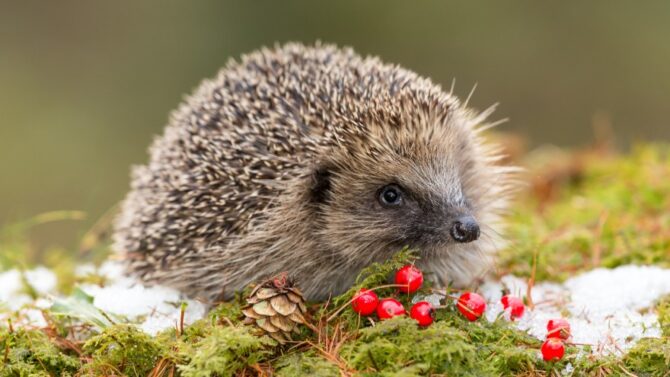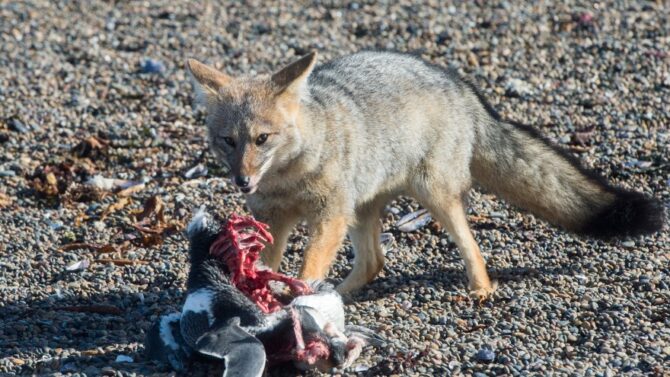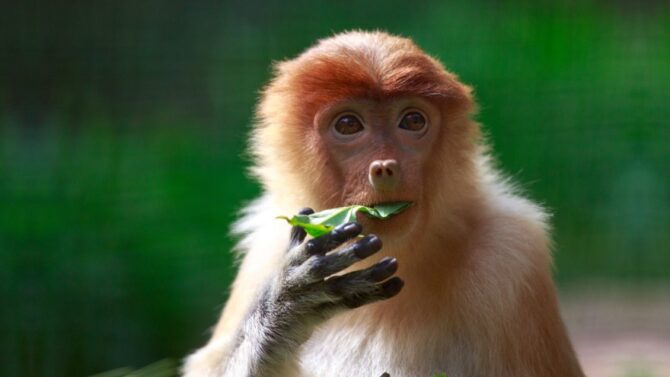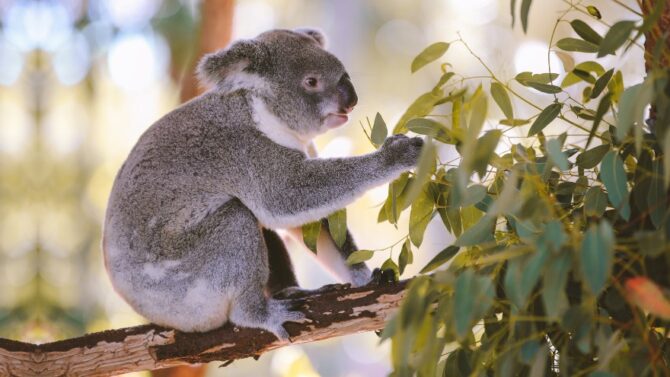The appeal of exotic animals as pets often leads people to ponder the feasibility of owning creatures like koalas.
These adorable marsupials, native to Australia, capture the hearts of many with their cuddly appearance and peaceful demeanor.
However, the reality of keeping a koala as a pet is far more complex and challenging than one might imagine.
Today, we explore the issues surrounding the ownership of koalas, from legal constraints to ethical considerations and practical difficulties.
In this blog, you will learn:
- Legal Restrictions: Owning a koala is illegal due to international and Australian laws protecting them as a vulnerable species.
- Ethical Considerations: Ethical issues arise from the koala’s specific dietary and habitat needs, which are challenging to meet in a domestic setting.
- Practical Challenges: The specialized diet, healthcare, and environmental needs of koalas make them unsuitable for life as pets.
- Conservation Efforts: Supporting koala conservation through sanctuaries, zoos, and community involvement is crucial for their survival.
- Alternatives to Pet Ownership: Engaging in eco-tourism, educational programs, and conservation efforts offers ethical ways to appreciate and help koalas.
First Things First – Is It Legal?
International and Australian Laws
Koalas, one of the slowest species on our planet and emblematic of Australian wildlife, are protected under various international and national laws.
Internationally, the Convention on International Trade in Endangered Species of Wild Fauna and Flora (CITES) restricts the trade of koalas.
In Australia, they are listed as a vulnerable species under the Environment Protection and Biodiversity Conservation Act 1999, providing them further protection.
State Regulations in Australia
Australian states have their own wildlife laws. For instance, in Queensland and New South Wales, it’s illegal to keep a koala as a pet.
These laws are in place to protect native wildlife and ensure their survival in the wild. The stringent legal framework reflects the seriousness of conserving koala populations.
Implications for Prospective Owners
For those residing outside Australia, the legal barriers are even higher. Importing a koala is virtually impossible due to international and Australian laws.
These legal restrictions are crucial for the conservation of koalas and prevent their exploitation as pets.
Ethics
The Welfare of Koalas
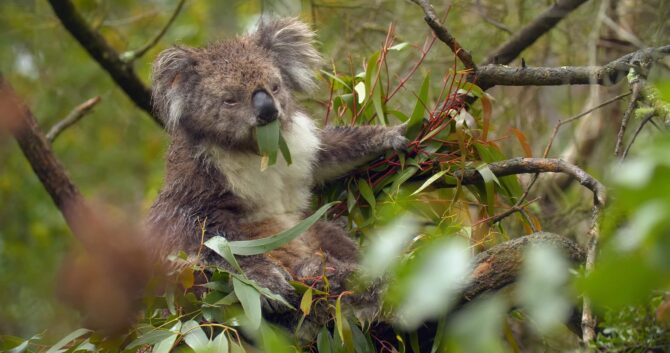
Koalas have specific needs that are challenging to meet in a domestic setting. They require a diet of fresh eucalyptus leaves, a commodity not readily available outside Australia.
Moreover, koalas are solitary animals that need ample space, something most households cannot provide.
Impact on Wild Populations
Removing koalas from their natural habitat for the pet trade can have detrimental effects on wild populations.
It disrupts their social structures and contributes to the decline of already vulnerable populations.
Responsibility Towards Endangered Species
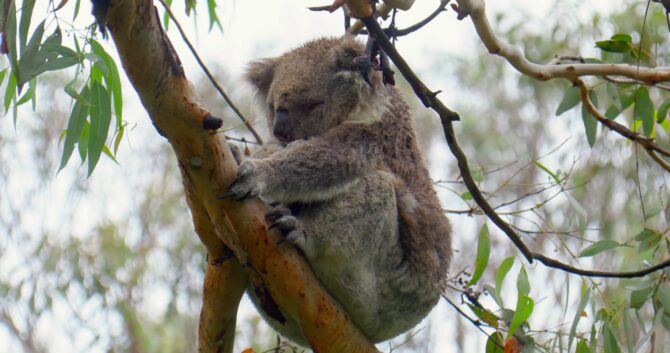
Owning a koala as a pet raises significant ethical questions regarding our responsibility towards endangered species.
Prioritizing their conservation and well-being in the wild is paramount over personal desires to own exotic pets.
Practical Challenges
Dietary Requirements
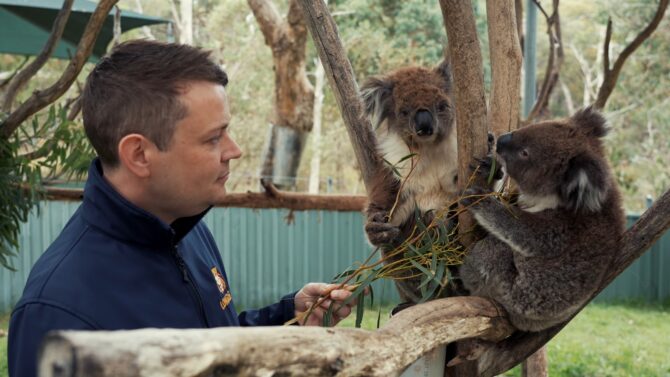
Koalas have a highly specialized diet, feeding almost exclusively on certain types of eucalyptus leaves.
These leaves are not only difficult to procure but also need to be fresh, making it nearly impossible for someone outside of Australia to provide an adequate diet.
Health Care Needs
Veterinary care for koalas is specialized and not widely available. These animals are prone to various health issues, such as Chlamydia and cancer, requiring expert veterinary attention, which is scarce outside of their native country.
Environmental Needs
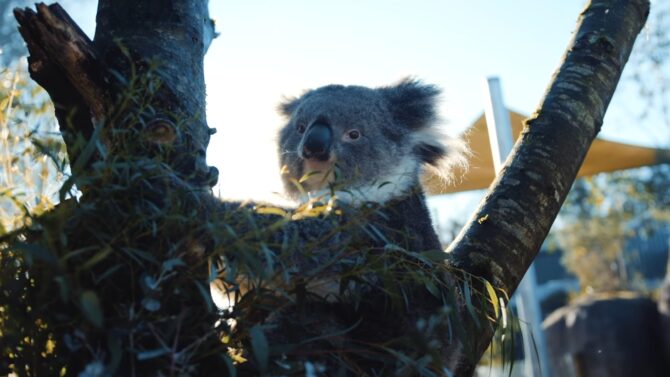
Koalas are adapted to live in specific Australian climates and habitats. Replicating these conditions elsewhere is challenging and costly.
They also need large territories to thrive, which is unfeasible in a typical household setting.
Conservation
Sanctuaries and Zoos
Sanctuaries and zoos play a critical role in koala conservation. They provide safe environments for injured, sick, or orphaned koalas and contribute to research and breeding programs aimed at increasing populations.
Community Involvement
Community involvement in koala conservation, through support for habitat preservation and awareness campaigns, is crucial.
Individuals can contribute by supporting organizations that work towards koala conservation.
Global Efforts
International cooperation is essential for koala conservation. Efforts include habitat preservation, research on diseases that affect these animals, and policies that protect their natural environment.
Koalas Beyond Their Image
In the Wild
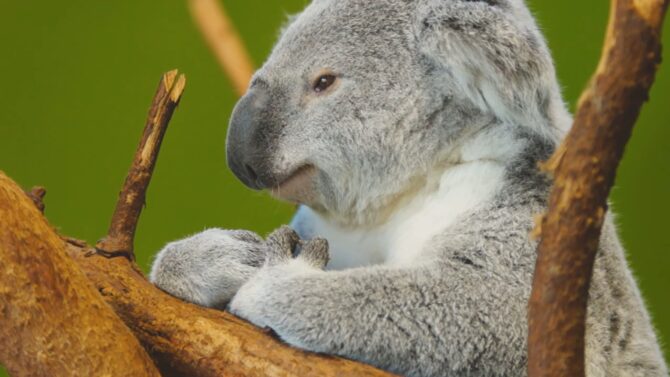
Koalas, primarily found in the eucalyptus forests of eastern Australia, have evolved to thrive in these specific conditions.
Their solitary nature and territorial behaviors are essential for survival, allowing them to manage food resources and mating opportunities.
This intrinsic connection to their habitat makes the idea of domesticating them even more unrealistic.
Misconceptions
Commonly perceived as cuddly and docile, koalas, in reality, are wild animals with natural instincts and behaviors unsuitable for a home environment.
They can be aggressive, especially males, during the breeding season. Additionally, koalas sleep up to 20 hours a day, not because they’re ‘cute and lazy’ but due to their low-energy diet.
The Unique Biology
Koalas have a specialized digestive system to process the toxic and fibrous eucalyptus leaves, their primary food source.
This unique adaptation is a marvel of evolution but also a significant hurdle in keeping them as pets.
Their dietary needs cannot be met with standard pet food or a varied diet.
Trends in Exotic Pet Ownership
Globally, there’s a growing trend in owning exotic pets, driven by novelty and status. However, the exotic pet trade often overlooks the welfare of animals and the ecological consequences.
Koalas, due to their specific needs and conservation status, highlight the problems with this trend.
International Wildlife Laws
International laws like CITES aim to prevent the exploitation of endangered species like koalas.
These regulations are crucial in combating illegal wildlife trade and ensuring that exotic animals remain in their natural habitats.
The Role of Public Awareness
Educating the public about the realities of exotic pet ownership is key to changing perceptions.
Knowing the needs of wild animals and the impact of removing them from their natural environment can discourage the desire for exotic pets like koalas.
Alternatives You May Consider
Instead of owning a koala, animal lovers can support conservation efforts.
This can be done through donations, volunteering, or simply advocating for the protection and habitat conservation.
Eco-tourism and Wildlife Sanctuaries
Visiting koalas in their natural habitat or in sanctuaries offers a more ethical way to interact with these animals.
Eco-tourism, if done responsibly, can contribute to conservation efforts and provide a deeper knowledge of koalas and their needs.
Educational Programs
Participating in educational programs about koalas and Australian wildlife can be a fulfilling alternative.
These programs often provide insights into the biology, behavior, and conservation of koalas, fostering a greater appreciation for these animals and their natural environments.
FAQs
Can koalas be domesticated like cats or dogs?
No, they cannot. They are wild animals with specific environmental and dietary needs that are difficult to replicate in a domestic setting.
Do koalas carry any diseases that could be harmful to humans?
Yes, they can carry diseases like Chlamydia, which can be harmful to both them and potentially to humans if transmitted.
How long do koalas typically live in the wild?
They typically live for about 10 to 15 years in the wild.
Can koalas adapt to different climates outside of Australia?
They are highly adapted to specific Australian climates and eucalyptus forests. They do not adapt well to climates significantly different from their native environment.
Are there any legal ways to interact with koalas?
Yes, legal ways to interact with them include visiting them in accredited zoos and wildlife sanctuaries or participating in regulated eco-tourism activities in Australia.
What can individuals do to help protect koalas?
Individuals can help protect them by supporting conservation organizations, advocating for the preservation of their natural habitats, and staying informed about environmental policies affecting wildlife in Australia.
Final Words
The dream of having a koala as a pet is fraught with legal, ethical, and practical challenges. The legal framework in place is designed to protect these vulnerable animals, and the practicalities of their care are beyond the scope of most individuals.
Ethically, the priority must be their conservation and well-being in their natural habitat. Instead of aspiring to own a koala, animal enthusiasts can better serve these charming marsupials by supporting conservation efforts and appreciating them in their natural environment or in sanctuaries and zoos dedicated to their care and preservation.



